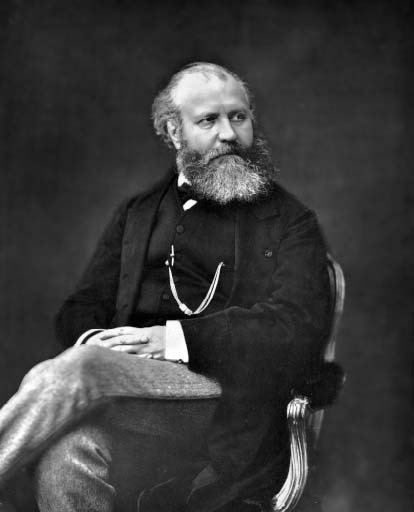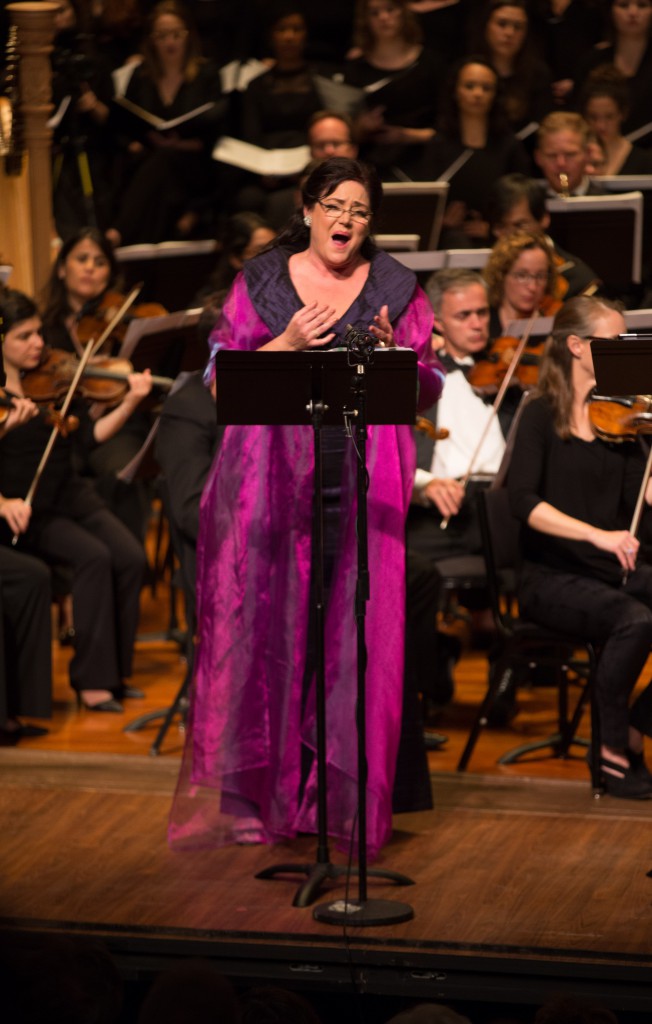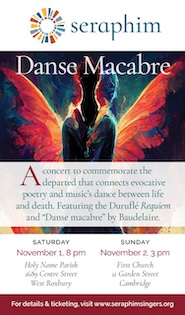Gounod reigns in belated U.S. premiere of “La reine de Saba” by Odyssey Opera

Charles Gounod’s “La reine de Saba” was heard in its belated U.S. premiere, presented by Odyssey Opera Saturday night.
Over the past several seasons, Odyssey Opera has carved out a name for itself by presenting operas that have fallen by the wayside. Bostonians have been treated to such works as Wagner’s Rienzi, Korngold’s Die tote Stadt, and Tchaikovsky’s The Maid of Orleans, among other obscure and semi-obscure works. All have been intriguing and revelatory experiences.
Saturday night at Jordan Hall, conductor Gil Rose opened the company’s sixth season with a concert performance of yet another curio: Charles Gounod’s La reine de Saba, heard in its its belated American premiere.
La reine de Saba “(The Queen of Sheba) fell out of the operatic repertoire in the early twentieth century, and bringing it back to life involved a great deal of time and effort. Gounod’s original five-act version was cut and rearranged prior to its premiere in Paris in 1862. Seeking to restore the opera to its original format, Rose poured through sources and sketches housed in American and European archives. His research even turned up a complete score found in a dusty basement in Italy.
The restored version heard Saturday night, which lasted three-and-a half hours with intermission, marked the first time that Gounod’s original conception of La reine de Saba had ever been heard.
Listening to the complete La reine de Saba is refreshing for those familiar with old recordings of the truncated opera. Characters are fleshed out, motives are clearer, and the opera’s hit aria, “Inspirez-moi, race divine,” now heard at the top of Act 1, immediately introduces listeners to Gounod’s rich melodic writing.
Save for Faust and Roméo et Juliette, Gounod’s operas lie in obscurity. But given the arresting music of La reine de Saba, it’s hard to see why that remains the case. The score is lushly orchestrated, with hints of dark Wagnerian grandeur complementing its florid melodies. Ensemble numbers have the ease and clarity of one of Meyerbeer’s scenes, and Gounod never misses a moment to punctuate the dramatic action with powerful orchestral crescendos and tutti passages.
The story, based on Gérard de Nerval’s Voyage en Orient, tells of the brief, passionate love affair between Balkis, the Queen of Sheba, and Adoniram, the brilliant architect who constructed the temple for King Solomon. The king, to whom Balkis is betrothed, fears Adoniram because of his ability to command admiration from the slaves. When he learns of the affair between his soon-to-be queen and the architect, the jealous king offers Adoniram treasure and an opportunity to rule as equals. Adoniram’s ultimate fate, however, comes by way of three disgruntled workers, who, interpreting Solomon’s anger as a call for action, murder their master in cold blood. Balkis curses Solomon and gives the architect a heroic funeral fit for any ruler.
A fine cast of singers delivered Gounod’s opera with all due fire and intensity.
As Balkis, Kara Shay Thomson sang with a soft but plush soprano that flowered beautifully in the upper register. The singer convincingly conveyed the queen’s torn feelings over duty and passion. In the Act 3 aria “Plus grand dans son obscurité,” her voice trembled with sweet sadness as the queen longed to forget her newfound feelings for Adoniram. In their final duet, Thomson’s singing swelled with overwhelming sorrow and horror over her lover’s demise.
Tenor Dominick Chenes brought a bright Italianate quality to the role of Adoniram. With high notes that rang clearly over Gounod’s thick orchestration, Chenes lofted a radiant “Inspirez-moi, race divine” an aria that could have been at home in a Puccini opera. Chenes and Thomson displayed excellent chemistry as the doomed couple, each spinning their lines into a tasteful duet in Act 3, where they declare their love.
Bass Kevin Thompson took some time to get into the role of King Solomon. His singing early in the opera felt labored and one-dimensional. But by his Act 4 aria, where he expressed his longing for Balkis, he found the vulnerable side of the jealous king. He also fared well at the end of the act, when Balkis tricked Solomon with a sleeping potion. In a final defiant gesture, Thompson expressed the king’s rage with bold, cavernous voice.
As Adoniram’s apprentice Bénoni, Michelle Trainor sang with a dark but nimble mezzo-soprano in her only featured aria, “Comme la naissante aurore,” which told of Balkis’ beauty. As the workers Amrou, Phanor, and Méthousaël, Mathew DiBattista, David Kravitz, and David Salsbery Fry effectively captured the characters’ cunning and arrogance. In her brief role as Sarahil, Katherine Maysek delivered her phrases with smooth-tone and elegance.
The heroes of this performance were the members of the Odyssey Opera Chorus, who, prepared by William Cutter, sang resplendently and with pristine diction as slaves, handmaidens, and other extras. The singers were at their best in Act 2, where they projected the horrors of Adoniram’s exploding bronze furnace with earth-shaking force.
Rose’s baton was swift and secure, and the conductor mined every ounce of drama from the score. He drew orchestral accompaniment that was sensitive to the singers’ every phrase. The ballet in Act 4, with its rustic verve and quick Parisian waltzes, was a particular nonvocal highlight.
Fine performances such as this one have the power to lead listeners to other unfamiliar repertoire. And with the two hundredth anniversary of Gounod’s birth now underway, Odyssey Opera’s performance of La reine de Saba will hopefully heap new attention on the composer’s other delightful yet unheralded operas.
Odyssey Opera will present Gounod’s Le médecin malgré lui 7:30 p.m. November 9 at the Huntington Avenue Theatre. odysseyopera.org
Posted in Performances







Posted Sep 26, 2018 at 2:48 am by Alexander Platt
Bravo Gil Rose!